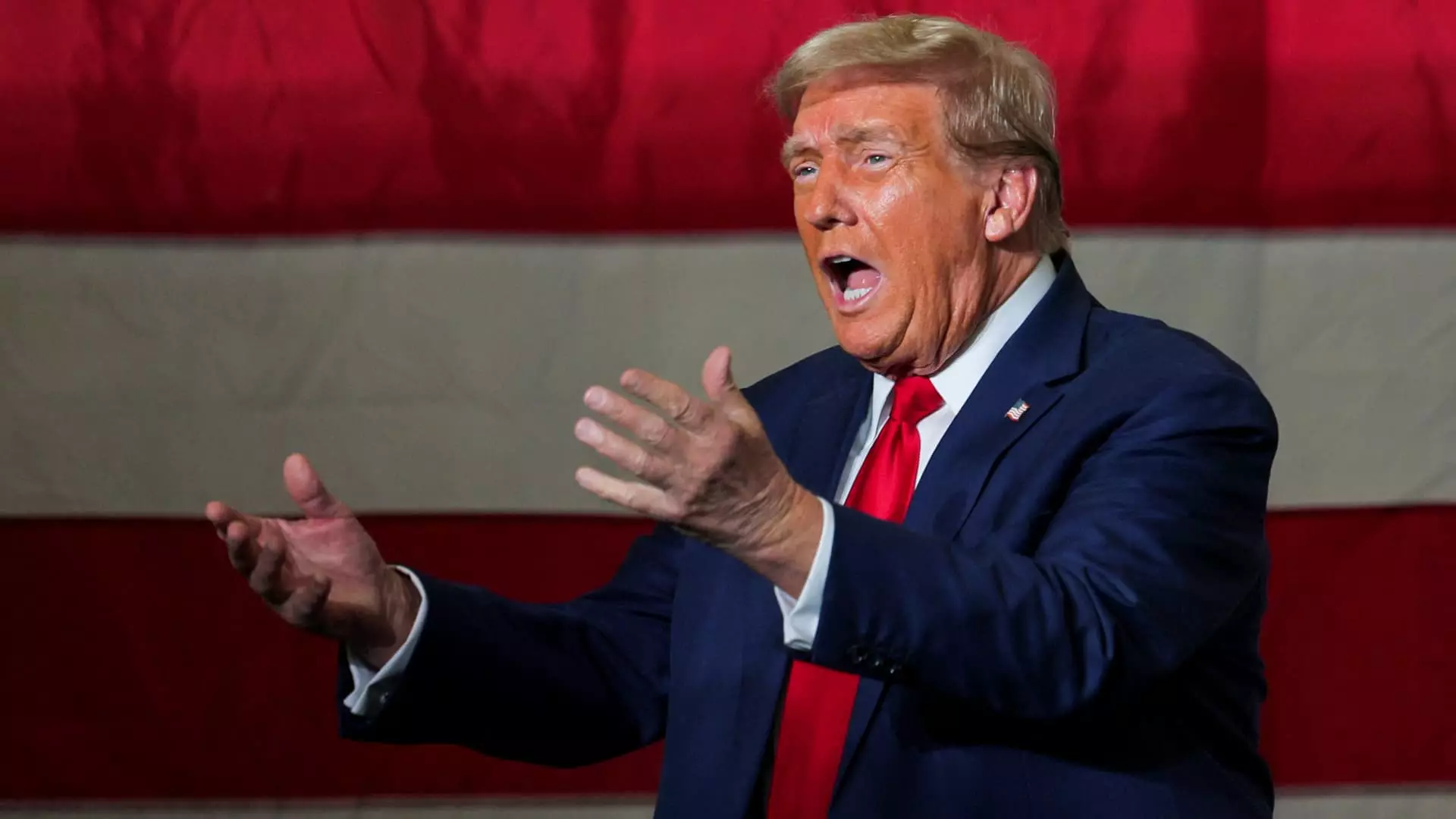The ongoing legal battles surrounding former President Donald Trump have reached a new phase, as the recent unsealing of a motion by Special Counsel Jack Smith throws light on the evidence against him regarding alleged attempts to undermine the 2020 election outcome. This motion, which spans 165 pages, was made available by federal judge Tanya Chutkan and reveals critical insights into the narrative preparing for a high-stakes political showdown as Trump vies for the Republican nomination against Vice President Kamala Harris in the upcoming 2024 presidential election.
One vital aspect of this case revolves around Trump’s assertion of presidential immunity in relation to actions performed while in office. The Supreme Court had previously ruled in July that he possesses presumptive immunity regarding official acts; however, Smith’s motion posits that this immunity does not extend to the alleged criminal conduct in question. The crux of the argument is that Trump’s actions—though undertaken during his presidency—were fundamentally personal in nature, designed to favor his electoral ambitions rather than fulfill his official responsibilities. According to Smith, the alleged conspiracies constituted a private effort to manipulate the electoral process through deceit, which is distinct from the role of a sitting president engaging in valid civic duties.
The significance of these claims cannot be understated, especially as Trump heads into a campaign where he could attempt to wield power to influence judicial proceedings against him. The potential outcome of the election poses questions about the intertwining of political fate and judicial accountability in America—a theme that resonates deeply in discussions about leadership ethics and the rule of law.
Allegations of Chaos and Deception
The motion further details specific instances of problematic behavior exhibited by Trump’s campaign during the tumultuous post-election period. It underscores examples where Trump and his team are accused of fostering confusion rather than seeking transparency. For instance, on November 4, 2020, a campaign operative allegedly attempted to create disorder at the TCF Center in Detroit upon sensing unfavorable election results. The response to news countering Trump’s claims of election malfeasance was notably tactical, with statements such as “find a reason it isn’t” highlighting an apparent willingness to distort the truth for political gain.
Such actions, if proven, highlight a deliberate strategy of sowing discord in the electoral process. Rather than investigating claims of fraud through appropriate channels, the narrative suggests that Trump’s team engaged in provocations that could incite unrest, reminiscent of previous politically charged events in American history. This could lead to a reevaluation of the responsibilities that those in power bear during critical democratic processes.
The Role of Key Players: Pence’s Dissenting Voice
The filing provides a glimpse into the dynamics that unfolded within Trump’s inner circle, particularly concerning former Vice President Mike Pence. Golden threads of tragedy and loyalty intertwine in Pence’s efforts to salvage republican decorum while simultaneously maintaining allegiance to Trump. The motion illustrates Pence’s attempts to gently persuade Trump to acknowledge defeat and embrace the electoral process, despite the pressures and confusion swirling around them.
One can observe a narrative arc in Pence’s conversations with Trump, indicating a struggle between unyielding loyalty and a commitment to constitutional principles. Throughout their discussions, Pence urged Trump to adopt a stance that preserved the integrity of the electoral process even as Trump grappled with the implications of defeat. His admonitions to look at the outcome not as a terminal loss but as an intermission resonate profoundly against the backdrop of an unfolding political drama.
The irony of a vice president—historically seen as the supporting figure—functioning as the voice of reason raises questions about the nature of governance in the face of extraordinary circumstances. If Trump did indeed reject these overtures of reconciliation, it becomes clear that the consequences of such decisions extend beyond personal ambition and into the fabric of American democracy.
As the legal proceedings advance, the stakes remain high not only for Trump but also for the broader implications for American democracy. The tension between political maneuvering and legal accountability will undoubtedly shape the contours of the upcoming electoral landscape. Each revelation, unsealed document, and court ruling serves to knit a complex tapestry of allegations, defenses, and political strategies that will impact how citizens view their democracy.
In these tumultuous times, the intersection of law and politics invites scrutiny of the actions of all, holding leaders accountable while ensuring that the democratic principles upon which the nation was founded remain steadfast. As Trump vies for the presidency once more, voters will undoubtedly evaluate not just his policies but the integrity of his conduct during one of the most contentious electoral periods in recent history.


Leave a Reply